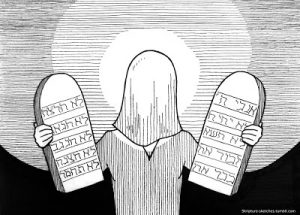If this is your first viewing, please see my Introduction before reading this.
30/31 January. Exodus chapters 36-40
I’m combining two days readings into one here. These last five chapters of the book are mostly a record in great detail of the construction and furnishing of the tabernacle. It’s easy to get lost in the detail, and although there is no doubt a lot of symbolism in the way it was constructed, I am not going to try and understand it all. But taking the making of the tabernacle as a whole, three things occur to me.
Firstly, the image one might have, from the world today, of hundreds of thousands of refugees in a semi-arid country is that of hopeless people sitting in tents provided by aid agencies, with nothing to do. In fact, those who have had the privilege to work in such camps tell of the way in which the people work together to make the most of their situation. If you want inspiring refugee stories, try the UNHCR website. Under God’s leadership through Moses and Aaron, the Israelites managed to pull together to build a large place of worship at the heart of their ‘tent city’.
Secondly, the amount of wealth shown here is simply stunning. The outer shell of the tent is leather (for waterproofing) but inside all is gold and other metals, coloured textiles and acacia wood. Some of this they would have brought with them out of Egypt, some they may have gained by trading (for they seem to have brought large flocks of animals with them). But the main thing to note is that all the people gave sacrificially to the construction of the tabernacle – whatever precious objects they had, were offered to the community as a whole for its place of worship and meeting. Too often I come across church communities where members of the church expect all the money for their projects to come from outside, whereas in fact God expects his people, then as now, to show their love for him in generous giving – “all things come from you, O Lord, and of your own do we give you” is part of the liturgy, but also needs to be an attitude for life.
Thirdly, when all was finished there was a grand opening. The lamps were lit, incense burned, sacrifices made, no doubt there was much singing as well, and the glory of the Lord filled the tabernacle (as it did the Temple in Isaiah’s day). You can feel the excitement of the people as they awaited this climax of their giving and hard work, and the reward for it is to experience the very presence of God, in a way that few people ever have. Thus ends the book of Exodus, which (if the timings are to be taken literally) covers just the first year of what was to be a generation-long trek in the wilderness. But throughout that time, we are told, the presence of God would be with them and lead them on from one stage to the next.
